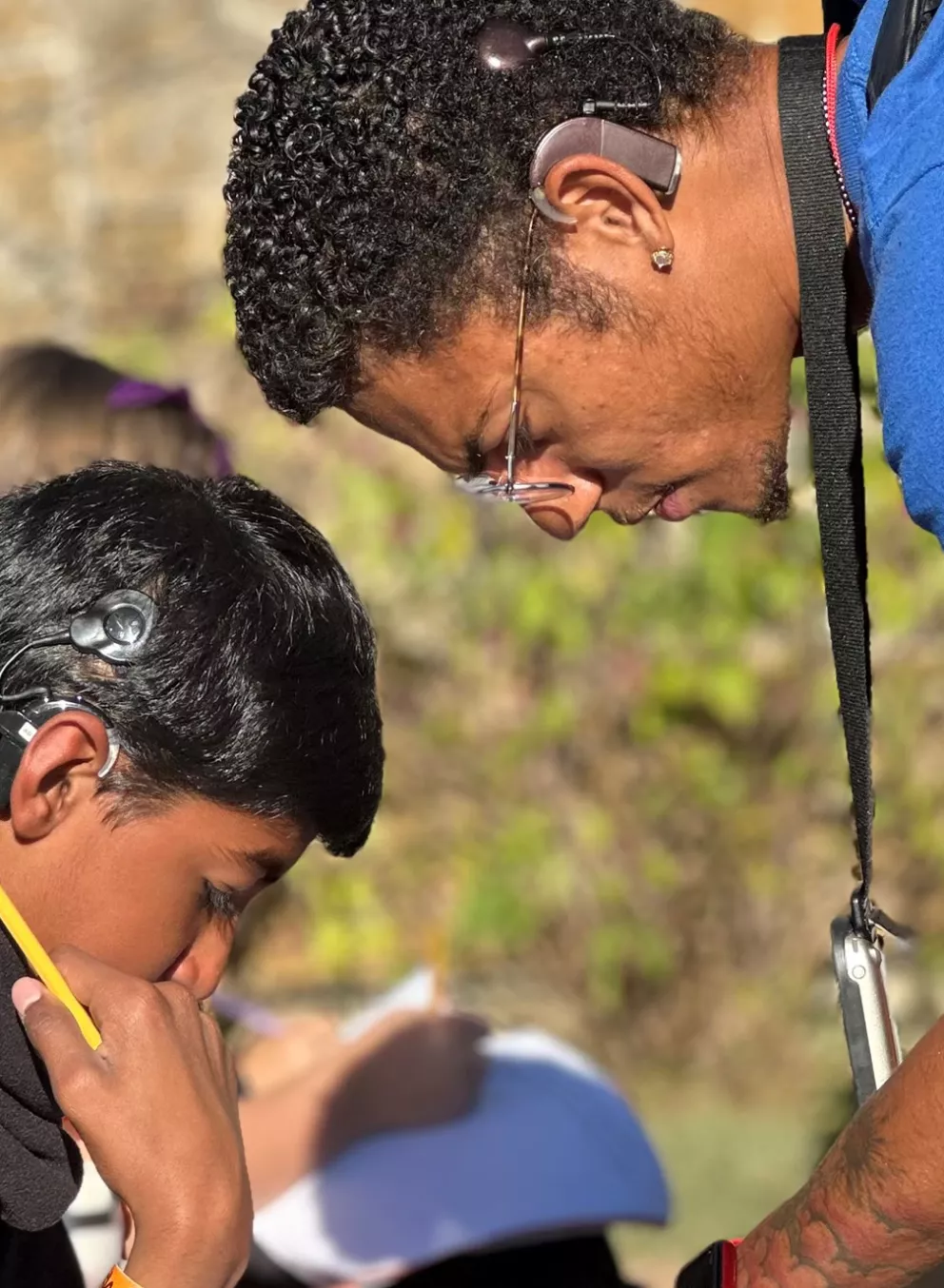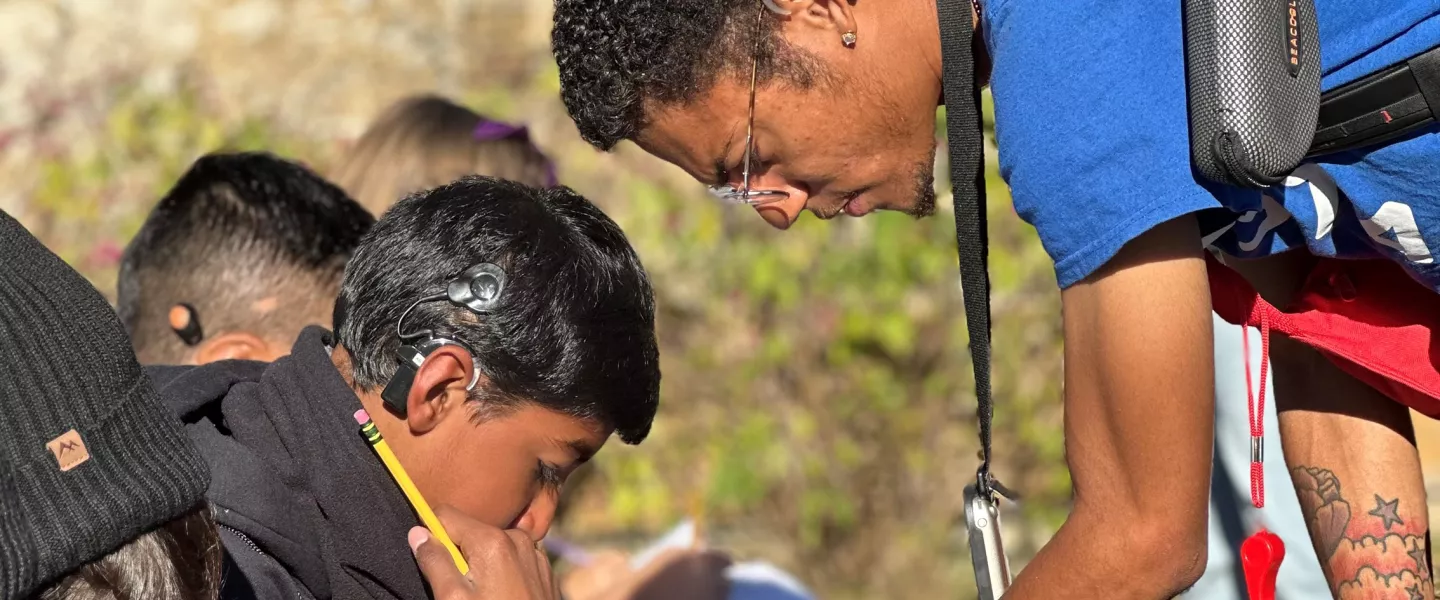Forest Adventure
(2.5 hours) This is a hands-on exploration of the forest ecosystem as we hike down the forest trail. Students practice journaling and data collection and deepen their understanding of how forest organisms adapt to forest conditions, interact as an ecosystem, and change over time. Other points include forest ecology, natural succession, essential plant identification, and the carbon dioxide/oxygen cycle.
Blackland Prairie Adventure Race
(2.5 hours) This is the study of the Texas Blackland Prairie. Students will observe the physical characteristics of the land and learn how it impacts the ecosystem. Activities include food webs, fossil digging and soil profiling, model shelter building, and building a “time machine” with renewable and nonrenewable resources.
Lindberg Lake Adventure
(2.5 hours typically paired with canoeing/fishing) Students will explore lake ecology and test the quality and health of the lake based on the organisms living there. They will learn about Texas watersheds, the water cycle, and the aquatic food web using nets. Strainers and microscopes to discover macro-invertebrates and their roles in pond ecology.
Adventure Challenge
(2.5 hours typically paired with archery or climbing wall) Also called Low Ropes, this class is a series of outdoor games and challenges designed to increase teamwork. Challenges include cable walks, a whale watch, and multiple spider webs. Group processing sessions are integrated, and Students learn the basics of archery.
Outdoor Living Skill
(1-2.5 hours) Students learn how to safely build a fire, build basic shelters, identify edible plants, use a compass, and practice other outdoor survival skills.
Orienteering
Texas Living History
(2.5-3 hours pairs popularly with 4th grade Texas history curriculum ) Students pretend they are settlers from Tennessee, who bought land in North Texas from Collin McKinney. They meet a Pioneer, who learns how to live off the land and make butter; a Soldier, who learns military drills and field first aid; a Caddo Indian, who learns games and farming; and a Vaquero, who learns how to lasso. Students must decide if life in 1836 is for them and what Texas’ future should be.
Second Grade Curriculum (Day program)
Three classes in one: Rock Hound: Students distinguish between natural and man-made resources, dig for fossils, and measure rocks. Forest Hike: Students identify and discuss parts of plants, flowers, and trees and observe living organisms in their environments. Discovery Room: Students measure their ability to jump based on how far animals jump, discuss food chains with live animals, and play a metamorphosis game. This program was developed for 2nd grade Science TEKS but is available for any age group.
Discovery Room/ Turtle Terrace (30-60 minutes)
Students can participate in hands-on, self-guided nature activities that teach food chain/web, metamorphosis, parts of a plant, and natural water filtration. The Discovery Room includes live animals, a sensory table (bones, nests, shells, fossils, etc.), and games and activities.
EVENING PROGRAMS
Nature Scene Investigation (NSI) (30-60 minutes)
Various objects of nature are set out as “evidence” in several scenes. Students use identification charts, interpretive skills, and journals to solve the “environmental crime,” tell what happened, and evaluate the values involved.
Campfire (60 minutes)
Songs, skits, stories, and camp fun! Camp staff coordinate songs and skits with cabin groups. S’mores can be provided by your school group or purchased from camp. Skewers and firewood are provided.
Star Gazing Outdoors
(30 minutes and may be paired with a campfire) Constellations and planets tell a story or two. Staff will point out constellations with laser pointers.
Nike Hike/ Twilight Time
(30-90 minutes and may be paired with a campfire) Walk outdoors with the intent to get to know nature in darkness. Activities emphasize sensory awareness and wildlife, including bat and moth tags, dark colors, evening sounds, solo walks, star gazing, and Sparkle Party.

